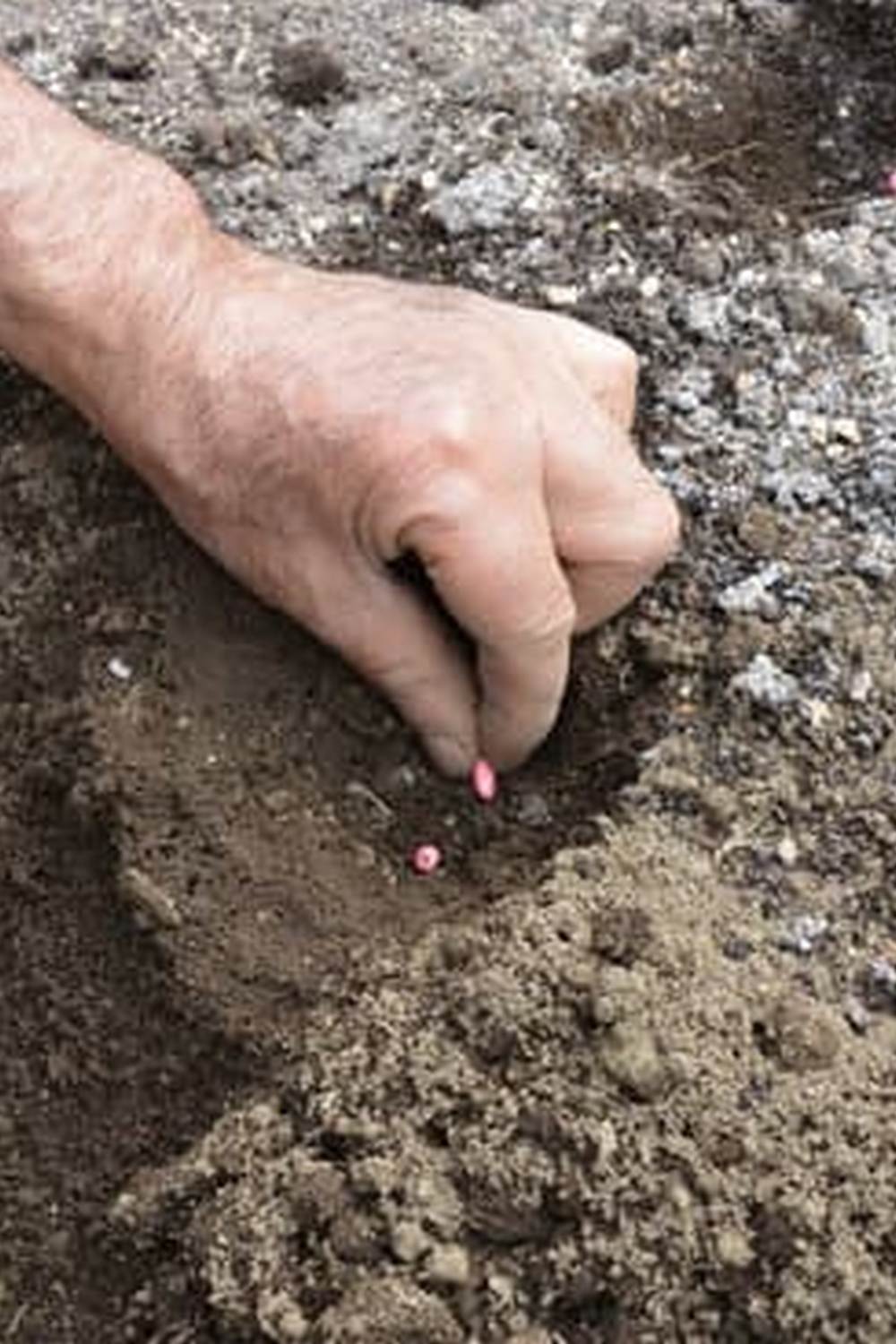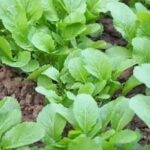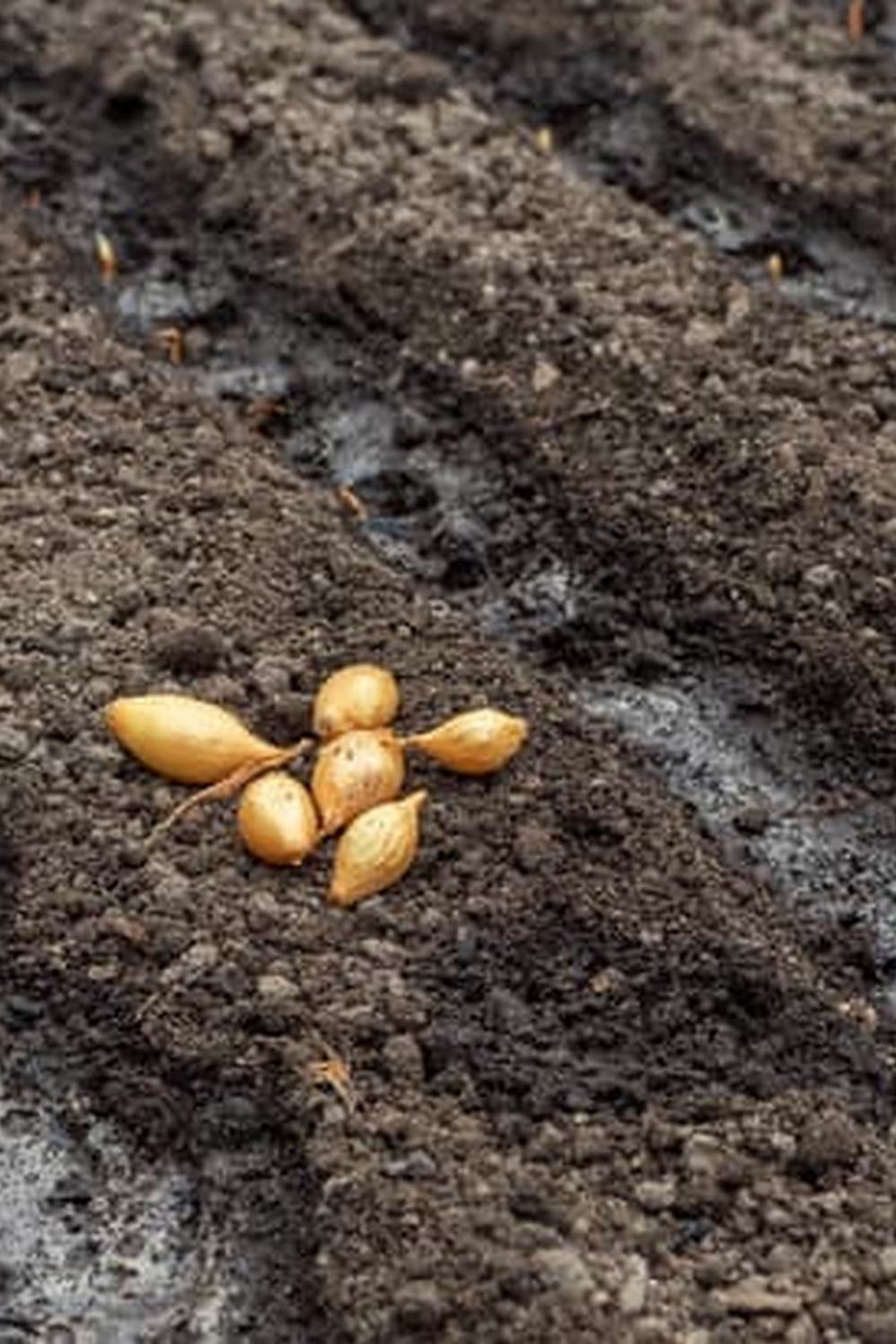Welcome to the Ultimate Guide to Vegetable Gardening in Phoenix, AZ. Vegetable gardening in Phoenix is a popular activity that offers numerous benefits to residents of this desert city. Despite the challenges presented by the hot and arid climate, many people in Phoenix have found success in growing their own vegetables, reaping the rewards of fresh and healthy produce while embracing the joy of gardening.
The unique climate of Phoenix presents both challenges and opportunities for vegetable gardening. With its long summers, intense heat, and limited rainfall, it is essential to select vegetables that are well-suited to these conditions. This guide will provide you with valuable information on choosing the right vegetables for Phoenix’s climate and soil, as well as tips on properly preparing your garden bed for success.
In addition to selecting the right vegetables, proper irrigation techniques play a crucial role in successful vegetable gardening in Phoenix. Efficient watering methods can help conserve water while ensuring your plants receive the necessary hydration. This guide will also cover different irrigation techniques suitable for the desert climate and provide tips on scheduling irrigation and preventing water waste.
By following this ultimate guide, you will gain knowledge on how to tackle common challenges such as managing pests and diseases specific to Phoenix’s vegetable gardens. You will also learn techniques to maximize yield and hear inspiring success stories from experienced local gardeners who have flourished despite the unique conditions.
Whether you are a seasoned gardener or just starting out, this comprehensive guide will equip you with all the information you need to thrive at vegetable gardening in Phoenix. So grab your gardening gloves and get ready to embrace the joy and rewards of growing your own delicious and healthy produce in this vibrant desert landscape.
Choosing the Right Vegetables for Phoenix’s Climate and Soil
Phoenix’s hot and arid climate presents unique challenges and opportunities when it comes to vegetable gardening. To ensure success in your garden, it is crucial to select vegetables that are well-suited for this type of environment. By choosing heat-tolerant and drought-resistant varieties, you can maximize your chances of a bountiful harvest.
Vegetables Thriving in Phoenix’s Climate
Some vegetables are better adapted to the desert conditions of Phoenix than others. Heat-loving plants that thrive in high temperatures include tomatoes, peppers, eggplants, okra, and melons. These crops not only tolerate the extreme heat but often require long periods of warm weather to produce a plentiful harvest.
Additionally, many desert-adapted leafy greens can be grown successfully in Phoenix. Examples include Swiss chard, kale, collard greens, and lettuce varieties that can withstand the intense sunlight while maintaining their crispness and flavor.
Importance of Heat-Tolerant and Drought-Resistant Varieties
When selecting vegetables for your Phoenix garden, prioritize heat tolerance and drought resistance. Look for varieties specifically developed for arid climates or those that are naturally adapted to hot environments. These plants have evolved to withstand the challenges posed by high temperatures and limited water availability.
Heat-tolerant varieties typically have thicker leaves or protective coatings on their foliage that help them retain moisture more effectively. Drought-resistant varieties often have deep root systems that allow them to access water from lower layers of soil.
List of Vegetables Suitable for Phoenix’s Soil Conditions
While selecting appropriate vegetables for Phoenix’s climate is important, it is equally crucial to consider the soil conditions specific to the region. The desert soil can vary widely in its composition, ranging from sandy soils with low organic matter content to nutrient-rich loamy soils.
Fortunately, there is a wide variety of vegetables that can thrive in different types of soil. Some examples include root crops like carrots, radishes, and beets that prefer sandy soils with good drainage. Others such as beans, peas, and cucumbers can adapt well to a range of soil types.
When planning your vegetable garden in Phoenix, take into account the unique climate and soil conditions to ensure a successful harvest. By choosing heat-tolerant and drought-resistant vegetables suited for the region’s specific needs, you can increase your chances of gardening success while reaping the rewards of fresh, homegrown produce.
Preparing Your Garden Bed for Success
Importance of Well-Prepared Soil
Preparing the garden bed is a crucial step in ensuring the success of your vegetable gardening endeavors in Phoenix’s harsh conditions. The desert climate, with its high temperatures and low humidity, presents unique challenges for growing plants. However, by focusing on soil preparation, you can create an environment that supports healthy plant growth.
One key aspect of preparing your garden bed is to address the soil composition. Most soils in Phoenix tend to be sandy or have poor fertility, requiring enrichment with organic matter and amendments. Adding compost or well-rotted manure can improve soil structure and increase nutrient levels, providing a fertile base for your vegetables.
Step-by-Step Instructions for Garden Bed Preparation
To prepare your garden bed successfully, follow these step-by-step instructions:
- Clear the area: Remove any weeds, rocks, or debris from the garden bed to provide a clean slate for planting.
- Loosen the soil: Use a garden fork or tiller to loosen the soil up to a depth of 8-12 inches. This will improve drainage and allow roots to penetrate easily.
- Test the pH: Conduct a soil test to determine the pH level of your soil. Most vegetables prefer slightly acidic soil with a pH between 6 and 7.
- Amend the soil: Based on the results of your soil test, amend the soil as needed to adjust pH levels and provide additional nutrients. Add organic matter such as compost or peat moss to enhance fertility and moisture retention.
- Incorporate fertilizer: Depending on specific nutrient requirements, incorporate balanced organic fertilizers into the top few inches of soil before planting.
- Rake it smooth: Use a rake to level out the surface of your garden bed for even planting.
By following these steps and preparing your garden bed adequately, you’ll set the foundation for productive vegetable gardening in Phoenix.
Enriching the Soil with Organic Matter and Amendments
Adding organic matter and amendments to your soil can significantly enhance its fertility, moisture-retaining capacity, and structure. Here are some options for enriching your garden bed’s soil:
– Compost: Adding compost is an excellent way to improve the overall health of your soil. It increases its organic matter content, enhances nutrient availability, and promotes beneficial microbial activity.
– Well-Rotted Manure: Incorporating well-rotted manure into the soil provides a rich source of nutrients that can boost plant growth.
– Peat Moss: Peat moss helps improve soil structure by increasing water retention capabilities in sandy or fast-draining soils. It also aids in preventing compaction while adding organic matter.
– Vermiculite or Perlite: These lightweight minerals improve drainage and aeration in heavy clay soils, preventing waterlogged conditions that could harm plant roots.
When adding these organic matter amendments, aim for approximately 20% by volume, evenly mixing them into the top few inches of soil. It’s essential to know the specific nutrient requirements of each vegetable you plan to grow and adjust your amendments accordingly. Once properly enriched, your garden bed will provide the necessary nourishment for healthy vegetable plants throughout their growing season.
Essential Tools and Supplies for Vegetable Gardening in Phoenix
Vegetable gardening in Phoenix, AZ requires the right tools and supplies to ensure success in a challenging climate. The intense heat and arid conditions make it essential for gardeners to have the proper equipment and materials to support their plants. In this section, we will discuss the essential tools and supplies necessary for vegetable gardening in Phoenix.
Firstly, having high-quality garden tools is crucial. A durable shovel, hoe, rake, and trowel are among the basic tools every gardener should have. These tools will help with soil preparation, weed removal, planting, and maintenance tasks. Additionally, a pair of good-quality gardening gloves will protect your hands while working with soil and plants.
Another important aspect of vegetable gardening in Phoenix is irrigation systems. Due to the dry climate, it is crucial to have an efficient watering method to provide sufficient moisture to your plants. Drip irrigation is highly recommended as it conserves water by delivering it directly to the roots of each plant. It also reduces weeds and minimizes evaporation.
Sun protection is also essential when gardening in Phoenix’s scorching heat. A wide-brimmed hat, sunscreen with a high SPF rating, and lightweight clothing that covers exposed skin are necessary to protect yourself from harmful UV rays. Additionally, consider using shade cloth or constructing shade structures over your garden beds to provide relief from intense sunlight during peak hours.
When choosing supplies for vegetable gardening in Phoenix, it is advisable to purchase them locally for convenience and suitability to the local climate. Local nurseries or garden centers often carry specific varieties of seeds and seedlings that are adapted to thrive in desert conditions. They may also offer organic fertilizers and soil amendments suitable for improving the nutrient content of Phoenix’s soil.
By equipping yourself with these essential tools and supplies for vegetable gardening in Phoenix, you set yourself up for success in growing healthy and vibrant plants despite the challenges of the desert climate. Proper tools ensure efficient gardening practices, while appropriate supplies support plant growth and health. With the right equipment and materials, you can enjoy a productive and rewarding vegetable garden in Phoenix, AZ.
Irrigation Techniques for Efficient Watering
Efficient watering is crucial in the desert climate of Phoenix, AZ, where water scarcity is a constant concern. Proper irrigation techniques can help ensure the health and productivity of your vegetable garden while conserving water. In this section, we will explore different irrigation methods suitable for vegetable gardening in Phoenix and provide tips on scheduling irrigation to avoid water waste.
- Drip Irrigation: One of the most efficient irrigation methods for vegetable gardens in Phoenix is drip irrigation. This method delivers water directly to the root zone of plants through a network of tubes or hoses with emitters placed at regular intervals. Drip irrigation minimizes water loss due to evaporation and runoff, making it an ideal choice for arid climates.
- Soaker Hoses: Similar to drip irrigation, soaker hoses release water slowly and directly into the soil surrounding plants’ roots. They are easy to install and cheap, making them a popular choice among vegetable gardeners in Phoenix. Soaker hoses can be placed on the soil surface or buried slightly beneath the soil for more effective delivery.
- Mulching: Applying a layer of mulch around your vegetables can significantly reduce evaporation and protect against water loss from high winds or extreme temperatures common in Phoenix. Organic mulches such as straw, wood chips, or compost can also improve soil moisture retention and regulate temperature fluctuations.
When scheduling your irrigation, it’s important to consider both your plants’ needs and environmental factors specific to Phoenix:
– Watering Times: Watering early in the morning or late afternoon allows plant roots to absorb moisture before the heat of the day causes rapid evaporation.
– Watering Frequency: Instead of frequent shallow watering, it’s better to deeply saturate the soil less often but provide enough moisture for plant roots.
– Soil Moisture Monitoring: Regularly check soil moisture levels by inserting a finger into the ground near your plants’ roots. If the top inch of soil is dry, it’s time to water.
By incorporating these irrigation techniques and tips into your vegetable gardening routine, you can optimize water usage while ensuring the healthy growth and productivity of your plants. Remember that conserving water in this arid climate is not only environmentally responsible but also helps save on your utility bills.
Managing Pests and Diseases in the Phoenix Vegetable Garden
When it comes to vegetable gardening in Phoenix, one of the challenges that gardeners face is dealing with pests and diseases. The hot and arid climate makes it an ideal environment for certain pests to thrive, while plants can be susceptible to various diseases. However, by implementing organic and environmentally friendly solutions, as well as preventive measures, you can effectively manage pests and diseases in your Phoenix vegetable garden.
Some common pests that vegetable gardeners in Phoenix may encounter include aphids, whiteflies, caterpillars, and spider mites. These pests can damage plants by feeding on leaves or sucking sap from stems. To control these pests without resorting to harmful chemicals, you can use natural remedies such as neem oil or insecticidal soap. Additionally, introducing beneficial insects like ladybugs or lacewings can help keep pest populations under control.
In addition to pests, diseases can also pose a threat to your vegetable garden in Phoenix. Some common diseases include powdery mildew, blossom end rot, and fusarium wilt. To minimize the risk of disease, it is important to practice good garden hygiene by removing diseased plants promptly and sanitizing your tools between uses. Proper watering techniques that promote healthy root development can also help prevent certain diseases like root rot.
Here are some key tips for managing pests and diseases in your Phoenix vegetable garden:
– Regularly inspect your plants for signs of pest infestation or disease symptoms.
– Identify the specific pest or disease affecting your plants to determine appropriate treatment methods.
– Use organic pest control methods such as companion planting or homemade sprays made from natural ingredients.
– Practice crop rotation to reduce the risk of soil-borne diseases.
– Avoid overwatering and maintain proper spacing between plants to prevent moisture-related diseases.
By following these tips and being vigilant about monitoring your plants’ health, you can effectively manage pests and diseases in your Phoenix vegetable garden. Taking proactive measures and incorporating organic solutions will help ensure the success of your garden and the health of your plants.
| Common Pests | Common Diseases |
|---|---|
| Aphids | Powdery Mildew |
| Whiteflies | Blossom End Rot |
| Caterpillars | Fusarium Wilt |
Maximizing Yield with Phoenix-Specific Tips and Techniques
In order to maximize crop yield in the Phoenix area, there are specific tips and techniques that vegetable gardeners can employ. The unique climate of Phoenix presents challenges and opportunities for growing vegetables, and understanding these factors can help gardeners optimize their harvest. Intercropping is one technique that can be used to maximize yield.
This involves planting different crops in close proximity to each other, allowing them to benefit from each other’s characteristics. For example, intercropping fast-growing and slow-growing vegetables together can help make efficient use of space and nutrients.
Succession planting is another technique that can be used in the Phoenix vegetable garden. This involves planting new crops as soon as previous ones are harvested, ensuring a continuous supply throughout the growing season. By carefully timing plantings, gardeners can take advantage of the long growing season in Phoenix and extend their harvests.
Providing shade structures is essential for successful vegetable gardening in Phoenix. The intense heat during summer months can be harsh on many plants, causing stress and affecting their productivity. By providing shade using structures such as umbrellas or shade cloths, gardeners can protect their plants from the scorching sun and maintain healthier growth.
Tips for Maximizing Yield in Phoenix Vegetable Gardens
| Technique | Description |
|---|---|
| Intercropping | Planting different crops together to optimize space and nutrient utilization |
| Succession Planting | Planting new crops as soon as previous ones are harvested for a continuous supply |
| Shade Structures | Providing shade to protect plants from intense heat during summer months |
By implementing these specific tips and techniques, vegetable gardeners in Phoenix can maximize their yield and have a successful harvest. It is important for gardeners to adapt their practices to the unique climate of Phoenix, taking advantage of the long growing season, while also protecting their plants from extreme heat. With proper planning and execution, a thriving vegetable garden is within reach in the desert climate of Phoenix.
Success Stories and Testimonials from Local Phoenix Gardeners
One of the best ways to gain inspiration and guidance in vegetable gardening is to learn from those who have already experienced success in the same climate. In this section, we will feature success stories and testimonials from seasoned vegetable gardeners in Phoenix, AZ. These individuals have spent years honing their skills and discovering what works best in the unique desert climate. Their insights, tips, tricks, and lessons learned will provide valuable knowledge to both novice and experienced gardeners alike.
Local gardener Mike Johnson has been growing vegetables in his Phoenix backyard for over a decade. One of his greatest successes has been with tomatoes. He shares, “The key to growing tomatoes successfully here is choosing heat-tolerant varieties like ‘Celebrity’ or ‘Sun Gold’. Planting them early in the season before temperatures reach extremes also helps.” Mike advises other gardeners to use shade structures during the hottest parts of the day to protect delicate plants from scorching sun.
Another local gardener, Sarah Adams, has found great success with container gardening in her small urban patio space. She says, “In Phoenix’s limited outdoor space, container gardening allows me to grow a variety of vegetables without sacrificing aesthetics.” Sarah recommends using large containers with ample drainage and filling them with a well-draining potting mix enriched with compost. Her favorite vegetables to grow include peppers, herbs, and compact varieties of lettuce.
To address the challenges of pests and diseases in Phoenix’s vegetable gardens, Martha Rodriguez practices organic pest control methods. She believes that prevention is key and shares her experience: “I regularly inspect my plants for signs of pests or diseases and take immediate action. I use natural deterrents like neem oil spray for aphids or handpicking caterpillars off my leafy greens.” Additionally, Martha encourages crop rotation every season to minimize pest buildup.
These success stories highlight the diversity and creativity of vegetable gardening in Phoenix. Whether it’s finding the right varieties, utilizing containers, or implementing organic pest control methods, local gardeners have discovered what works best in this unique climate. By embracing their advice and lessons learned, aspiring gardeners can increase their chances of success while maximizing their enjoyment of growing their own delicious and healthy produce in the desert.
Conclusion
In conclusion, vegetable gardening in Phoenix, AZ offers unique challenges and opportunities due to its hot and arid climate. However, with careful planning and preparation, it is possible to create thriving vegetable gardens that provide delicious and healthy produce. Throughout this guide, we have discussed the importance of choosing the right vegetables for Phoenix’s climate and soil conditions, as well as preparing the garden bed for success.
One of the key takeaways from this guide is the significance of efficient watering techniques in the desert climate. Proper irrigation is essential to ensure that plants receive enough water without wasting this precious resource. By implementing various irrigation methods and following a schedule, gardeners can optimize water usage and promote healthy plant growth.
Additionally, managing pests and diseases is crucial for maintaining a successful vegetable garden in Phoenix. By employing organic and environmentally friendly solutions, gardeners can effectively control pests while minimizing harm to beneficial insects and other wildlife. It is also important to implement preventive measures to reduce the risk of pests and diseases, such as rotating crops and practicing good hygiene in the garden.
Ultimately, embracing vegetable gardening in Phoenix offers numerous joys and rewards. Not only does it allow individuals to enjoy fresh produce straight from their backyard, but it also provides a sense of accomplishment and connection with nature. By starting their own vegetable gardens in Phoenix, readers can experience firsthand the satisfaction of growing their own food while enjoying the countless benefits of this rewarding hobby in the desert climate.

If you’re looking to get into vegetable gardening, or are just looking for some tips on how to make your current garden better, then you’ve come to the right place! My name is Ethel and I have been gardening for years. In this blog, I’m going to share with you some of my best tips on how to create a successful vegetable garden.





